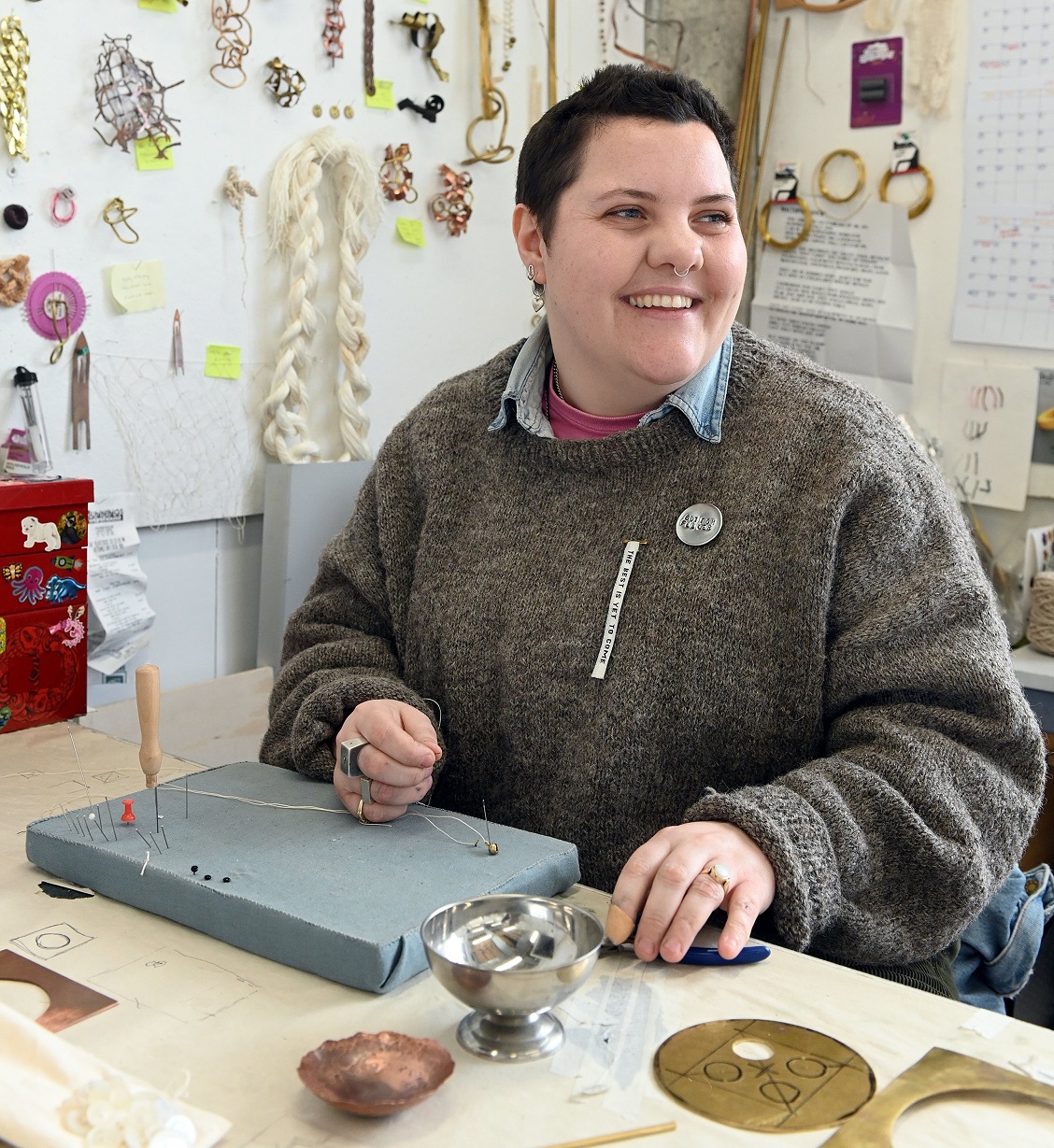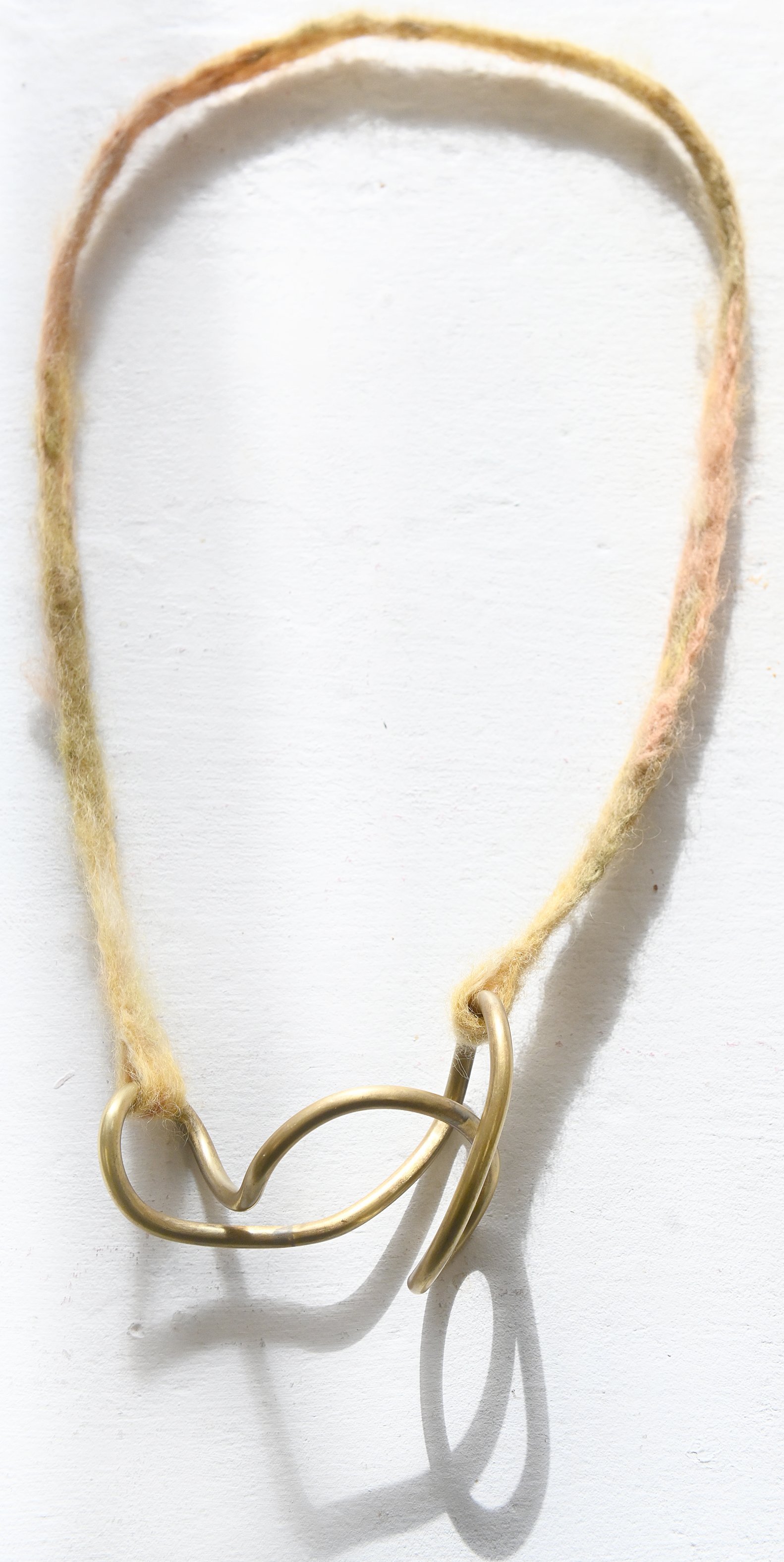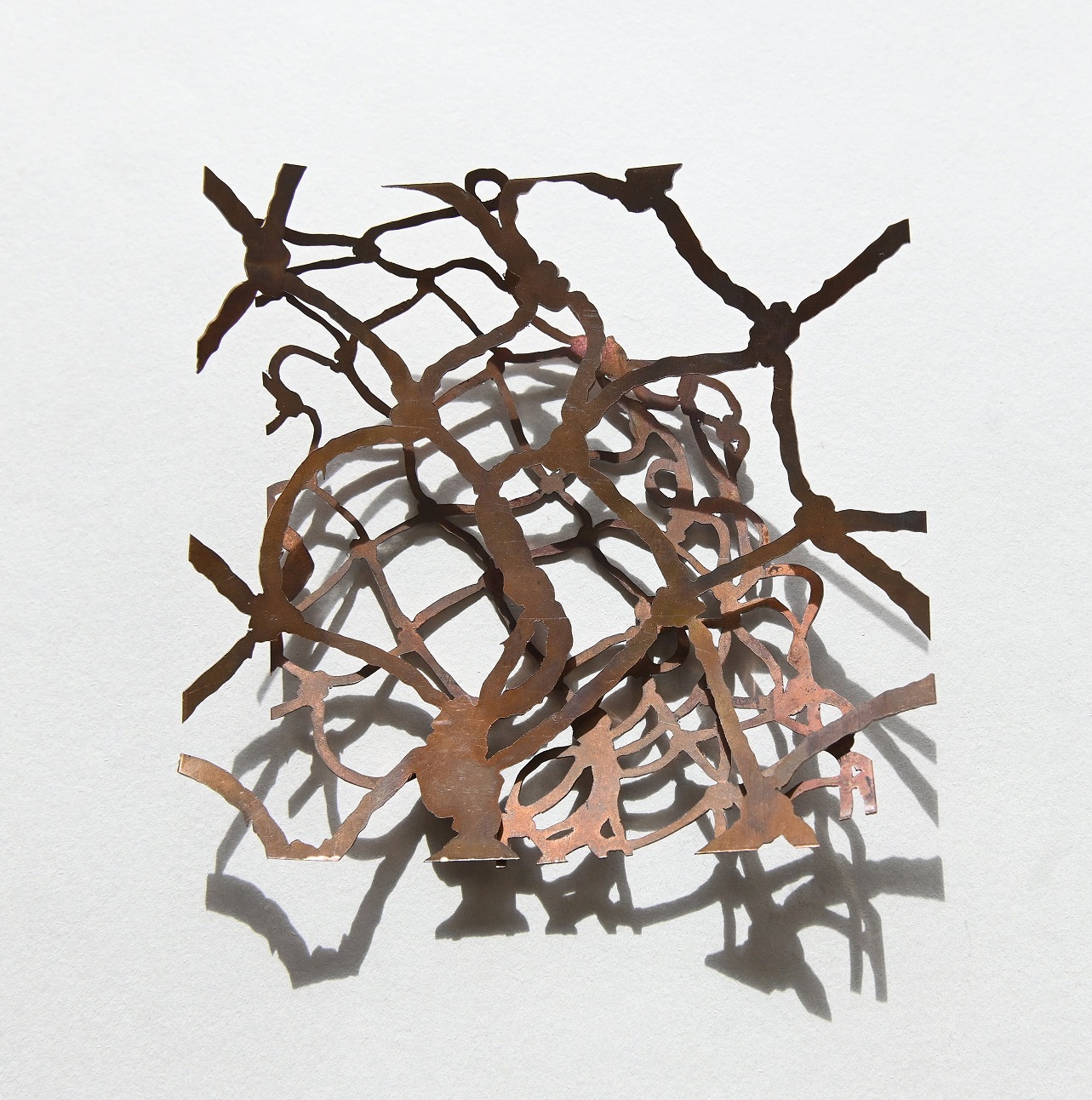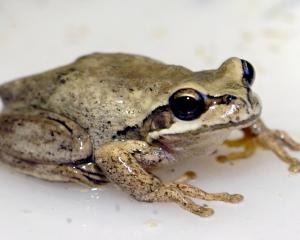
Getting a job to pay the bills after graduating from art school is just what you do, but for Michaela Woolf that simple decision changed the direction of her life — with a little help from Covid.
The job in pearl jewellery wholesale was her first experience making jewellery.
"That’s where I learnt about jewellery."
When she had learnt all she could, Woolf felt she needed a change and began to make plans to cycle the length of New Zealand and then "travel the world".
"It was holding me back from getting other jewellery jobs and I was not making art at that stage. I burnt myself out after my under-grad degree."
But the Covid pandemic hit and Woolf reassessed her options. She began investigating ways to learn more commercial jewellery skills and Dunedin School of Art seemed the perfect fit, so she moved south to do a six-month postgraduate certificate.
To her surprise, the work "switched" on her artistic brain again and she decided to do her master’s, a two-year commitment, just as the second lockdown began.
"It’s hard to remember how I went without it. It’s definitely been a mammoth effort. It’s been really challenging at times."
But it has also had its high points as what she thought of as ambitious ideas worked.
"I was like ‘I did it, oh it’s working, this really intensive study and time on the tools has resulted in a knowledge I’ll have forever’.
"I really like that about jewellery. I get to make something for someone rather than a strange sculpture I can’t fit under my bed."
She has now pulled together an exhibition of her work titled "It Doesn’t Have to be Like This".
For Woolf, making the works has been a chance to work through some of her concerns about climate change and its impacts on society.
"I started off really interested in the concept of collapse, climate collapse, and starting to see the effects of that and the disintegration of public infrastructure and services and looking into the future and thinking it’s only going to get worse."
Woolf grew up in rural Canterbury and lived in Christchurch so saw the extent of what large natural disasters do to people, things and structures.
"I was trying to figure out what to do with all those feelings of despair and panic. By sort of naming it, that we are in collapse, frees us up to try something new — that is kind of the idea of the project."
From there she moved into what could be done, especially small scale, immediate things.

Her jewellery exists in "families" that are not nuclear.
"They are quite strange and can break apart and come back together. That’s really the key of the project, the different way things can be part of one another yet also break apart and come back together."
Woolf, who credits her "wonderful" high school art teacher for igniting her passion, started out working with mother of pearl buttons, harking back to her job working with pearls in Christchurch. She collected a lot of the buttons and began doing a lot of button threading.
"Then I remembered why I came here was to learn metal skills so I moved to brass."
Brass is an interesting material to her as it has domestic and industrial uses. She uses it alongside a little bit of copper.
"I was learning about those sorts of materials as I’d only really had experience with finer metals of silver and gold working in wholesale. I like the freedom it gives and brass patinas beautifully as well; you get really interesting colours and surfaces."
Working with metal is not completely alien to Woolf, whose father is a fitter, turner and welder who worked at home while she was growing up.
"I’d always liked metalwork and had done a little bit of welding in my under-grad. My aunty was in jewellery sales when I was a child so there was always shiny things around."
Her interest in care, love and kindness showed how hard it was to come up with definitions for those things, she found. Reading bell hooks’ All About Love also changed her thinking.
"So many people do awful things in the name of care. I had ideas about what care is but I struggled to find the words.
"Then I realised why no-one has a definition of care, because it is really hard."
She kept coming back to "caring is a way of seeing" but no-one else "got it".
"It’s only really recently that I’ve come to [think] — good care is sharing someone's reality with them, seeing their perspective and being there offering what you can do for them to make it better, or lighten the load. It’s important to think about the care you can offer well and can do sustainably, reliably and offer things they need, it’s a negotiation."
This is shown in her work by her pieces being displayed in "families" and some of the jewellery is made from different parts of another.
"There are punch outs, the hole is a piece of jewellery and the bit taken out then becomes jewellery but in the show they aren’t necessarily next to each other."
It is also shown in the things she can now make for people from the skills she has learnt during her time at art school.
"Jewellery is really interesting as it is seen as this extra, glamorous or fashion but we have been adorning ourselves for a very long time. It’s a very human thing to do."

"There are ethical conundrums and I’m very aware I won’t be able to use brass forever. At some point the scales will tip and it will feel too gross. It’s already a bit gross now."
There have also been other more personal considerations for Woolf, who did her undergraduate degree in sculpture at Ilam School of Fine Art. Textiles were her main focus as she loved the "yellowing nature" of old materials.
"The way I created in my under-grad is not sustainable; I did a lot of endurance, very large scale, repetitive, laborious tasks, like big knittings and I injured myself doing that chronically and I have to negotiate that now."
She has wrist injuries which means being careful of what she is doing and for how long. It meant she had to be practical and realistic about what she could accomplish for her exhibition.
"I realise I might not be able to make in this way forever but trying to stretch out how long I’ve got with as much mobility in my hands as possible. That is looking quite long term."
Where she is now is looking for a practice that is sustainable, nourishing and very generative.
"The stress of ending a project has stunted all that but in the middle there I felt I’m just along for the ride, it was flowing, in a way I saw the purpose in it."
Woolf began to feel it was important to keep putting energy into the project.
"Things in the outside world are probably only going to get tougher with more despair. I was in Auckland for the floods, it was one of those ‘Oh goodness climate change is here and we’re only going to see more and more of this’."
As she readies herself for her postgraduate exhibition Woolf can now see contemporary jewellery is a "much better fit" for her than the sculpture of her undergraduate degree.
"It makes a lot of sense with the way I approach things. I’m really grateful I ended up here. Otherwise I don’t know if I’d have returned myself. I was pretty dark on academic art."
Woolf now teaches a beginners’ jewellery night class and has found others often have that initial concern as well.
"We have been using fire to heat and shape metal for so long, it is this really basic thing but it kind of feels magic. People are often surprised; fire plus flux and solder and you’ve closed something, you’ve made a ring."
She hopes to stay in Dunedin and is giving herself time to enjoy what she has been able to create once she has a bit of time away from it.
"The old me would be right on to the next thing but I’m really interested in reflecting."
TO SEE:
Michaela Woolf, Post-graduate exhibition, Dunedin School of Art Gallery, August 28-September 1












